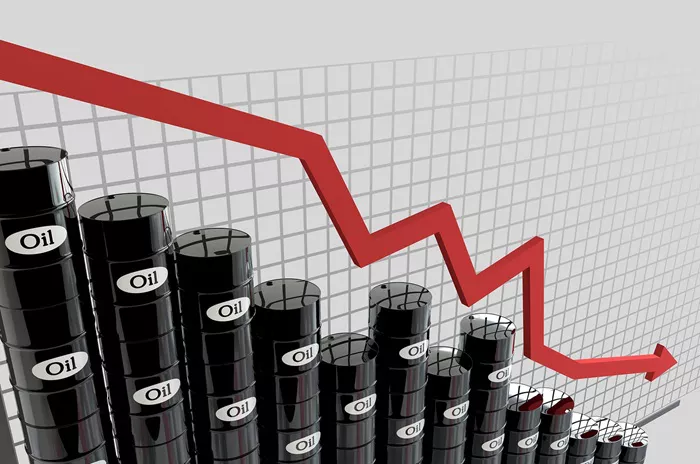Crude oil is a vital resource that fuels the global economy. Its price can have significant implications for various sectors, from transportation to manufacturing. While low crude oil prices may seem beneficial at first glance, they can lead to several negative consequences. This article will explore why low crude oil prices can be detrimental to economies, the oil industry, and global stability.
Understanding Crude Oil Prices
Crude oil prices fluctuate based on supply and demand dynamics. When demand for oil is high, prices tend to rise. Conversely, when supply exceeds demand, prices fall. Factors affecting these dynamics include geopolitical events, economic growth, and changes in energy consumption patterns.
The Current State of Crude Oil Prices
As of [current date], crude oil prices are low, hovering around [current price] per barrel. This decline can be attributed to several factors, including the COVID-19 pandemic, increased production in some regions, and shifts toward renewable energy sources. While lower prices may benefit consumers in the short term, they can create long-term issues.
Economic Impact of Low Crude Oil Prices
Low crude oil prices can have significant adverse effects on the global economy. Here are some key areas of concern:
1. Negative Impact on Oil-Producing Countries
Countries that rely heavily on oil exports, such as Saudi Arabia, Russia, and Venezuela, face severe economic challenges when prices fall.
Budget Deficits: Many of these countries have national budgets dependent on oil revenue. Low prices can lead to budget deficits, forcing governments to cut spending on public services, infrastructure, and social programs.
Economic Instability: Countries may experience political unrest and instability due to economic challenges. Citizens may protest against reduced public spending and increased unemployment.
2. Job Losses in the Oil Industry
The oil industry is a significant source of employment worldwide. Low crude oil prices can lead to job losses and reduced job creation in several ways:
Layoffs: Companies may reduce their workforce to cut costs in response to low prices. This can lead to widespread layoffs, impacting workers and their families.
Reduced Investment: When prices are low, oil companies may delay or cancel new projects, reducing job opportunities in the sector.
3. Impact on Related Industries
The ripple effects of low crude oil prices extend beyond the oil industry. Several related sectors can also be negatively affected:
Service Sector: Companies that provide services to the oil industry, such as drilling, transportation, and equipment manufacturing, may experience reduced demand, leading to layoffs and financial struggles.
Local Economies: Areas dependent on oil production may face economic decline, affecting local businesses and services.
See also: What Is Sweet Crude Oil Used For?
Environmental Considerations
While low crude oil prices may seem beneficial for consumers, they can also have negative environmental implications:
1. Encouragement of Fossil Fuel Consumption
Low prices can lead to increased consumption of fossil fuels, delaying the transition to renewable energy sources.
Higher Emissions: Increased fossil fuel consumption contributes to greenhouse gas emissions, exacerbating climate change.
Reduced Investment in Renewables: With cheaper oil, investments in renewable energy technologies may decline as companies focus on immediate profits rather than long-term sustainability.
2. Environmental Degradation
Low prices can also lead to reckless drilling and exploration practices as companies seek to maximize profits.
Ecosystem Damage: Increased drilling activity can result in habitat destruction, oil spills, and other forms of environmental degradation.
Regulatory Erosion: In a bid to maintain profitability, companies may push for relaxed regulations, further harming the environment.
Global Geopolitical Implications
The geopolitical landscape can also be affected by low crude oil prices. Here are some key considerations:
1. Shift in Power Dynamics
Low oil prices can alter power dynamics between oil-producing and oil-consuming countries.
Weakened Oil Producers: Countries like Russia and Saudi Arabia may lose leverage in geopolitical negotiations, leading to shifts in alliances and international relations.
Emergence of New Players: Countries with strong economies that are less dependent on oil may gain influence in global affairs.
2. Increased Tensions
Low prices can lead to increased tensions between oil-producing nations.
Competitive Devaluations: Countries may engage in competitive devaluations to maintain their export competitiveness, leading to currency wars and economic instability.
Geopolitical Conflicts: Economic struggles can exacerbate existing tensions and lead to conflicts over resources.
See also: Where Is Crude Oil Located on the Earth?
Implications for Consumers
While consumers may benefit from lower fuel prices in the short term, the long-term implications can be negative:
1. Volatile Prices
Low crude oil prices can lead to price volatility, affecting consumers’ budgets and financial planning.
Sudden Price Spikes: When oil prices rise sharply after a period of low prices, consumers may face sudden increases in fuel and energy costs, impacting their disposable income.
Increased Costs for Goods and Services: Fluctuating fuel prices can affect transportation costs, leading to increased prices for goods and services.
2. Dependence on Oil
Low prices may reinforce a dependence on oil, hindering efforts to diversify energy sources.
Slower Transition to Renewables: If consumers become accustomed to low fossil fuel prices, there may be less urgency to invest in renewable energy solutions.
Increased Vulnerability: Dependence on oil can make economies vulnerable to future price shocks, leading to economic instability.
Conclusion
While low crude oil prices may offer short-term benefits to consumers, the long-term implications can be detrimental to economies, the environment, and geopolitical stability. The negative impacts on oil-producing countries, job losses in the oil industry, and increased consumption of fossil fuels can create significant challenges. As we move towards a more sustainable future, it is essential to recognize the complexities of the oil market. Understanding the consequences of low crude oil prices can help consumers, businesses, and policymakers make informed decisions. Ultimately, the goal should be to balance the benefits of affordable energy with the need for sustainable economic growth and environmental protection.
Related Topics:

